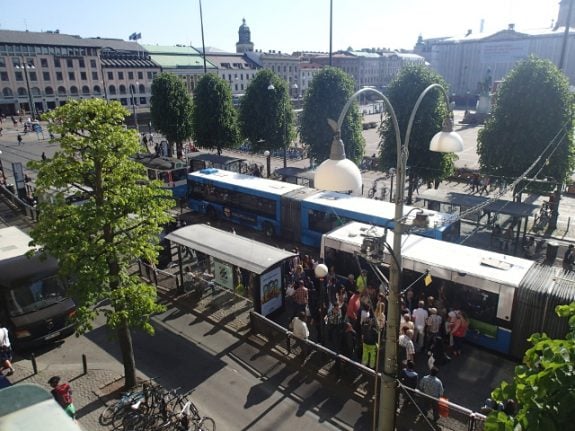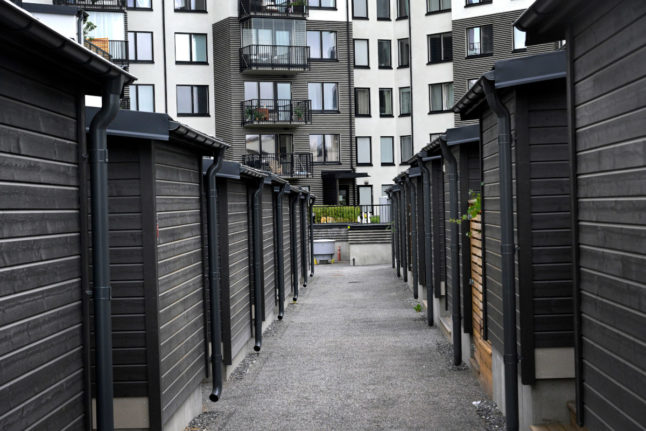The insight comes from a new study of Gothenburg residents by Gothenburg University's SOM Institute. In the autumn of 2016 it asked 7,000 people aged between 16 and 85 who were registered as living in Gothenburg a number of questions about their city – to which 3,463 replied.
Residents of Sweden's second city seem to generally be positive about it. Asked if they would recommend someone else move to Gothenburg, 75 percent said yes and only six said no (the rest did not know). Ninety-three percent meanwhile said they were happy with the place they currently live.
“Where you live in the city doesn't seem to impact how happy you are with Gothenburg,” SOM Institute political scientist Maria Solevid observed in a statement.
The study also looked at the image residents have of Gothenburg, asking them to take a position on a number of statements about the city: 96 percent agreed it has many good restaurants, 94 that it is a good city to live in, 93 that it has many places to meet friends, 91 that it has rich culture, 86 that it is somewhere to be proud of, and 83 that it has a good reputation internationally.
“How residents judge their city is an explicit indication of the city's appeal. Previous research has shown how a number of different aspects like salary levels, employment, housing quality, access to public services, culture, the environment, parks and recreation, safety, public transport, restaurants and nightlife all impact how content citizens are with their city,” the study explained.
READ ALSO: Gothenburg the world's 'most sociable city', study shows
The statement that the lowest number of people agreed with was that Gothenburg is a “safe and secure city” – 52 percent said that was true. Agreement varied on a regional level, and was lowest in the areas Torslanda (31), Kärrdalen/Slättadamm (33) and Kortedala (46), while most agreed in Södra Centrum (59), Stigbergstorget (65) and Bergsjön (68).
Gothenburgers have different concerns about societal issues compared to Swedes in general according to the research, which contrasted the answers with a pan-Swedish study from the same time period.
Asked which issues are most important to them, 25 percent opted for law and order (12 in Sweden in general), 22 percent infrastructure (two) and 18 percent housing (six). The most important issue was integration/immigration with 32 percent, but it was markedly lower than the Swedish average (45 percent).
“It's clear that crime, infrastructure and housing are very central issues in Gothenburg compared with Sweden overall. That's likely linked to incidents and situations in the city, and it will be interesting to see if and how it changes over time,” Solevid said.
Like Stockholm, Sweden's second city is grappling with a housing crisis, while problems with gangs in some suburbs have made international headlines in recent years. In 2016 an eight-year-old boy from Birmingham was killed when a hand grenade was thrown into a Biskopsgården apartment in what a criminology professor told The Local is part of a long-standing 'cycle of violence' in the area.
READ ALSO: More on Gothenburg's 'cycle of violence'



 Please whitelist us to continue reading.
Please whitelist us to continue reading.